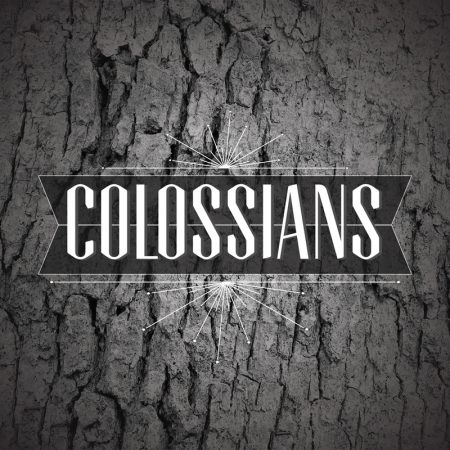- Two major themes
-
- The sufficiency and perfection of Christ
- The sanctification and perfection of His saints
- Paul warns of the dangers that will seek to hinder that process of sanctification and perfection and then moves to look at how the sanctifying work of Christ expresses itself in social relationships; in the family, in the workplace, in the church, and in the world.
- Over the last two weeks we looked at the dangers… the hindrances to sanctification… that come from the outside
- Traditions of men
- Elementary principles of the world
- Pagan or pharisaical “works based” religion
- Valuing and submitting to “worldly” ungodly authority
- False humility of asceticism and self abasement
- Mystic religious experience; angel worship and visions rooted in self righteousness and spiritual pride
- Last week we ended with these words. Col 3:1-4. “Therefore if you have been raised up with Christ, keep seeking the things above, where Christ is, seated at the right hand of God. 2 Set your mind on the things above, not on the things that are on earth. 3 For you have died and your life is hidden with Christ in God. 4 When Christ, who is our life, is revealed, then you also will be revealed with Him in glory.”
- Paul reminds us of our calling and position
- Raised up with Christ
- Having died to our old life and nature
- To a new life hidden with Christ and founded in Him
- Destined for glory alongside Christ
- And on that basis, we are to keep seeking and setting our minds on the things above
- Those things that reflect the mind and desires of Christ;
- His goals become our goals
- His passions become our passions
- His vision becomes our vision
- His purpose becomes our purpose
- His work becomes our work
- This week, we move from external dangers to internal ones
- Col 3:5ff. “Therefore consider the members of your earthly body as dead to immorality, impurity, passion, evil desire, and greed, which amounts to idolatry. 6 For it is because of these things that the wrath of God will come upon the sons of disobedience, 7 and in them you also once walked, when you were living in them. 8 But now you also, put them all aside: anger, wrath, malice, slander, and abusive speech from your mouth. 9 Do not lie to one another, since you laid aside the old self with its evil practices”
- These are the things that John references in 1 Jo 2:16 “For all that is in the world, the lust of the flesh and the lust of the eyes and the boastful pride of life, is not from the Father, but is from the world.”
- The first dangers to our sanctification stem from our worldly lusts.
- “Therefore consider the members of your earthly body as dead to… Not the best translation. Not “consider but rather “put to death”
- Immorality; “porneia”, from which we get “pornography”
- Refers to illicit, or “ungodly” sexual intercourse. (extramarital sex, adultery, homosexuality, incest, bestiality, …polygamy?) The focus is on sexual acts which pervert and erode God’s design.
- For some of us, we can say “OK, dodged that one!” But then we are brought to deal with passages like Mat 5:27 where Jesus says, “You have heard that it was said, ‘YOU SHALL NOT COMMIT ADULTERY’; 28 but I say to you that everyone who looks at a woman with lust for her has already committed adultery with her in his heart.” And that brings us to our next internal danger…
- Impurity; “akatharsia” while it can refer to unclean or impure acts, its sense has more to do with an internal state… a condition of heart and thought. It is an uncleanness of heart that leads to an uncleanness of action
- Rom 1:24, “Therefore God gave them over in the lusts of their hearts to impurity, so that their bodies would be dishonored among them.”
- Note that this is not the same as temptation. It is not impure to be tempted. “Akatharsia”, or “impurity”, deals with the response to temptation… do we turn toward it or away?
- 1 Cor 10:13 “No temptation has overtaken you but such as is common to man; and God is faithful, who will not allow you to be tempted beyond what you are able, but with the temptation will provide the way of escape also, so that you will be able to endure it.”
- Passion; “pathos”; very similar to the next danger, “desire”. There is no clear difference between the terms, yet it is likely that Paul had two different dangers in mind.
- KJV “inordinate affection”. “Over the top”, unrestrained, unwarranted, uncontrolled
- Empathy and sympathy are derived from this term
- We know practically how misuse can be harmful
- Evil desire; ἐπιθυμίαν κακήν
- With pathos we had misuse; unwise, uncontrolled
- With ἐπιθυμίανκακήν we have misdirection
- Refers to illicit, or “ungodly” sexual intercourse. (extramarital sex, adultery, homosexuality, incest, bestiality, …polygamy?) The focus is on sexual acts which pervert and erode God’s design.
- Immorality; “porneia”, from which we get “pornography”
- “Therefore consider the members of your earthly body as dead to… Not the best translation. Not “consider but rather “put to death”
- Col 3:5ff. “Therefore consider the members of your earthly body as dead to immorality, impurity, passion, evil desire, and greed, which amounts to idolatry. 6 For it is because of these things that the wrath of God will come upon the sons of disobedience, 7 and in them you also once walked, when you were living in them. 8 But now you also, put them all aside: anger, wrath, malice, slander, and abusive speech from your mouth. 9 Do not lie to one another, since you laid aside the old self with its evil practices”
- Those things that reflect the mind and desires of Christ;
- Paul reminds us of our calling and position
- Note, neither pathos nor epithumia are only negative. Passion and intense feeling can be a good thing
- Marriage
- Relationship
- Commitment
- Mission
- Luke 22:14ff. “When the hour had come, He reclined at the table, and the apostles with Him. 15 And He said to them, “I have earnestly desired to eat this Passover with you before I suffer; 16 for I say to you, I shall never again eat it until it is fulfilled in the kingdom of God.”
- Epithumia used twice; “I have desired with desire”
- It is misuse and misdirection that make passion dangerous.
- Greed; “pleonexia” greedy desire to have more, covetousness, avarice
- Another instance of misdirected and misapplied desire.
- Is it always wrong to desire to have something?
- Followed by interesting phrase, “which amounts to idolatry”. This reflects the truth of Jesus words in Matt 6:24 “No one can serve two masters; for either he will hate the one and love the other, or he will be devoted to one and despise the other. You cannot serve God and wealth.”
- Another instance of misdirected and misapplied desire.
- Beloved, it is important for us to identify these dangers to our growth and godliness. But before we move away from these things, it is also important for us to identify those things and times that make us weak… susceptible to these dangers
- Fatigue ; often from a failure to rely on God
- Solitude; often from a failure to keep the Word and Person of God before us
- Depression; often from an inability to look through and beyond our circumstances.
- Self pity; often from forgetting God’s great love for us
- Self reliance; often from forgetting His great power and our great need of Him
- Unwise love; often from failing to understand and follow God’s example of love.
- The second set of dangers stem from our unwarranted pride
- But now you also, put them all aside:
- Anger
- Wrath
- Malice
- Slander
- Abusive speech
- Lying to one another
- We become susceptible to these dangers
- When we think of ourselves more highly than we ought
- When we wish to remain in sin and ignorance
- When we fail to remember the worth of those around us
- When we are deficient in love
- When we forget our former state and the sacrifice made on our behalf
- When we fail to keep the word and Person of God before us
- But now you also, put them all aside:


0 Comments